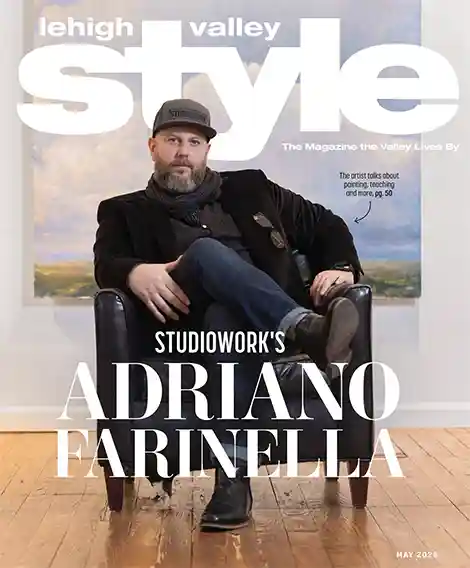Not so long ago, three girls were becoming fast friends in Allentown's West End. An easy bond formed in the kindergarten classroom endured through elementary, middle and high schools. Early on, there was time spent hanging out in a backyard treehouse; then, later, afternoons at the Stonecrest Swim Club, and evenings at Applebee's or the local movie theater. “We were good kids,” says Maureen North, one-third of the triad. “We didn't get into that much trouble.” Now those girls are all grown up, and although life has taken them away from the Lehigh Valley, their connection to each other and to their hometown remains strong. Recently, a new initiative made them more than just friends; they're now business partners as well, thanks to the launch in 2023 of their sustainable Play Decor™ company, Make It Cute.
Let's figure out a way to make something this spectacular out of something so common.
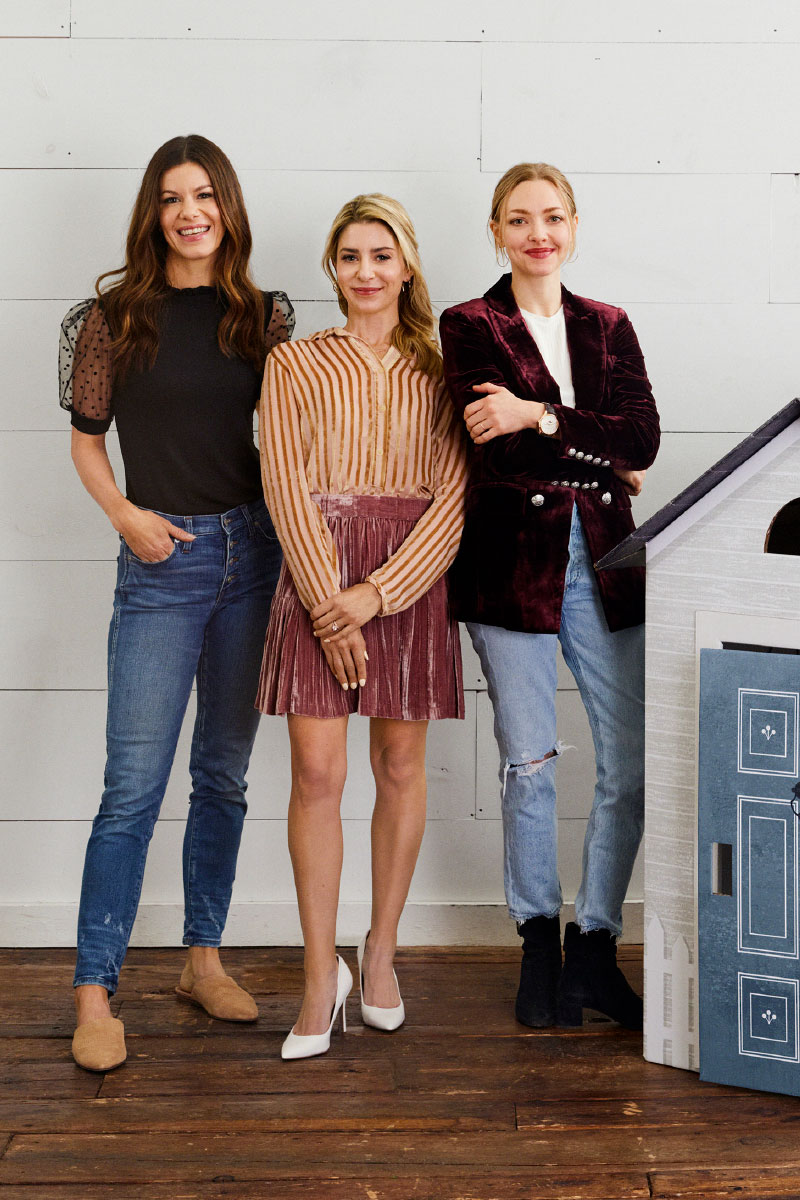
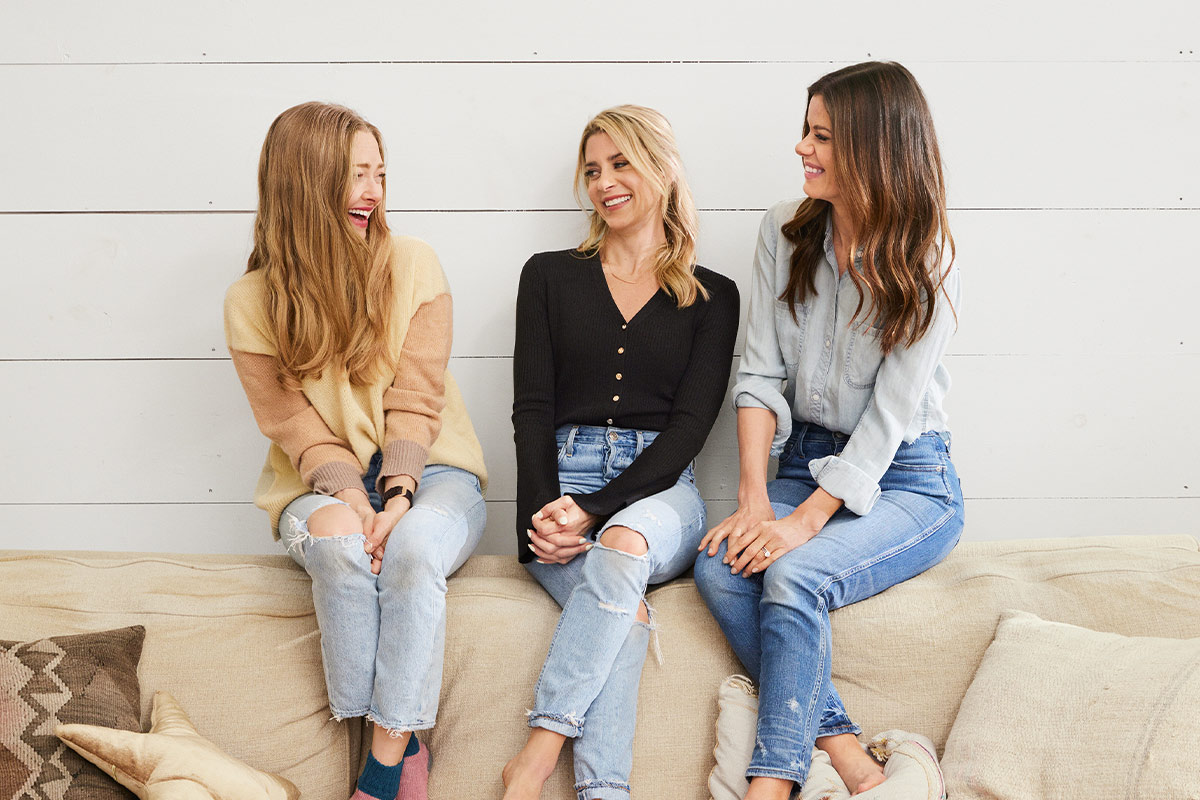
The three friends are North, Anne Hoehn and Amanda Seyfried. Seyfried is, of course, the actress who first honed her craft as a child at Civic Theatre of Allentown before eventually graduating to major roles in television and movies. Most recently, her performance as Marion Davies in 2020's Mank earned her both a Golden Globe nomination and an Academy Award nomination for Best Supporting Actress. She landed an Emmy Award for her portrayal of disgraced Theranos founder Elizabeth Holmes in the television series The Dropout.
But those accolades were far in the future when she was just a kindergartener in Allentown who saw an opening to make two new besties at Muhlenberg Elementary. Recalls Hoehn: “Maureen and I were sitting at a table and she walked in the room, and she just has this clear recollection of meeting us. And we stayed friends ever since.” By the time those stars aligned, Hoehn and North already had history: they met the prior year in the sandbox. Seyfried's addition to the mix solidified the friends as a trio.
Although other friends floated in and out of the fold, the three stuck together through the years, first at Muhlenberg, then at Trexler Middle School, and finally at William Allen High School. “We were all doing sports so there was a lot of Canary pride,” Seyfried says, referring to William Allen's school mascot. Following high school and college graduations, they lived in New York City for a little while before they were pulled in different directions, but they never lost touch. In 2016, each became pregnant with her first child. New motherhood enriched their friendship even further. “We were always connecting, wine on FaceTime or Zoom or whatever,” Seyfried says.
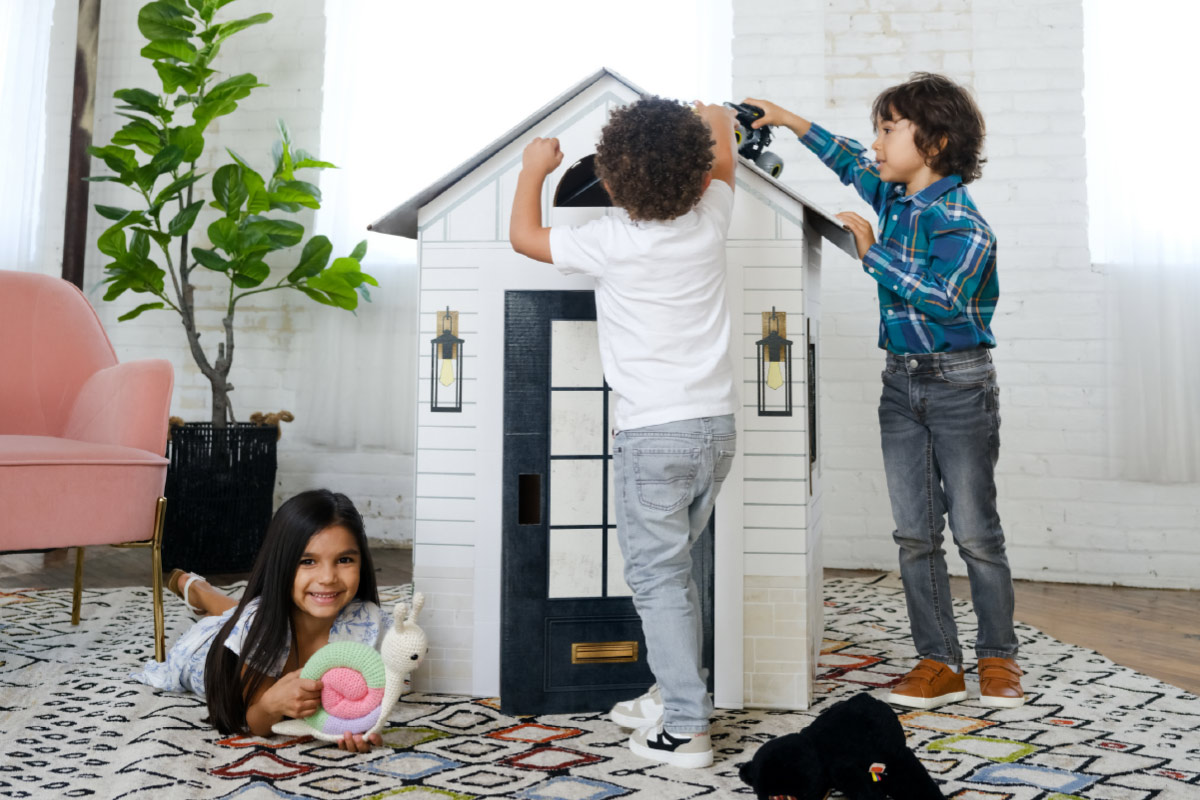
Fast forward to the COVID-19 pandemic when stay-at-home recommendations brought on a bout of cabin fever. “We were just kind of stuck, as most people were, stuck with our kids, our young kids,” Seyfried says. “And our houses were just overrun with junk. There's no better word for it.” With their interior spaces under a stronger microscope, they realized they were losing ground to the myriad of toys and clutter that inevitably accompany the addition of a bundle (or bundles) of joy to the household. “There's so much buying for kids that we don't have control over,” says Seyfried. “Grandparents, and cousins and friends. Everybody is so generous but that ends up just feeling like you can't control what's in your house anymore.” And, as today's parents can attest, those toys tend to be hulks of plastic that gobble up precious square footage and leave previously inviting living spaces looking more like the playroom of a daycare or a Pre-K classroom.
Hoehn, meantime, had started experimenting with making playhouses out of large refrigerator boxes for her children. “She was just really artistic and putting shingles on the roof and the kids were just loving it,” says Seyfried. “It seemed like fixing a problem in her own house and we were in love with them and we thought, let's make these for people. Let's figure out a way to make something this spectacular out of something so common.” Hoehn shrugs off the praise and points out that these early solo endeavors were rudimentary, but “when the three of us came together is when it really became something real.”
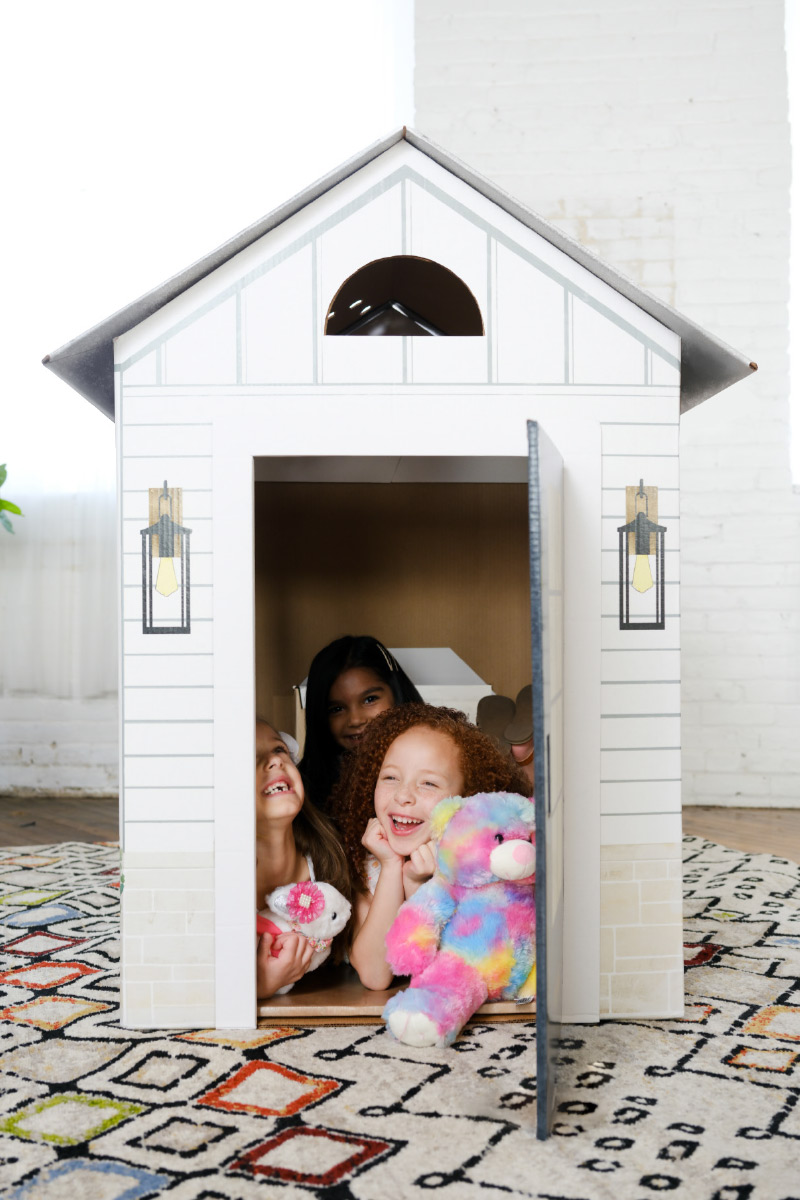
That kicked off a lengthy period of research and trial and error. “We really wanted it to be something that felt very special and intentional and something that was different from what was currently out there,” Hoehn says. The friends began experimenting with their own designs and materials. They swapped ideas and picked the brains of friends and associates. They cold-called potential manufacturers. They enlisted the help of their own children (they're all now mothers of two) to try out the test models. “We got out of our comfort zones to try to figure out how to engineer something when we have no background in engineering,” Seyfried says.
There's some uncertainty about who came up with the name Make It Cute, but all three women agree it represents half of their mission: to provide a playhouse that is more visually pleasing than today's typical offerings. “They were designed for something we would like in our aesthetic,” Seyfried says. Indeed, the company's two style options—the Cottage or Modern Farmhouse—look like they have more in common with a classic New England neighborhood than the toy section of a big-box retailer.
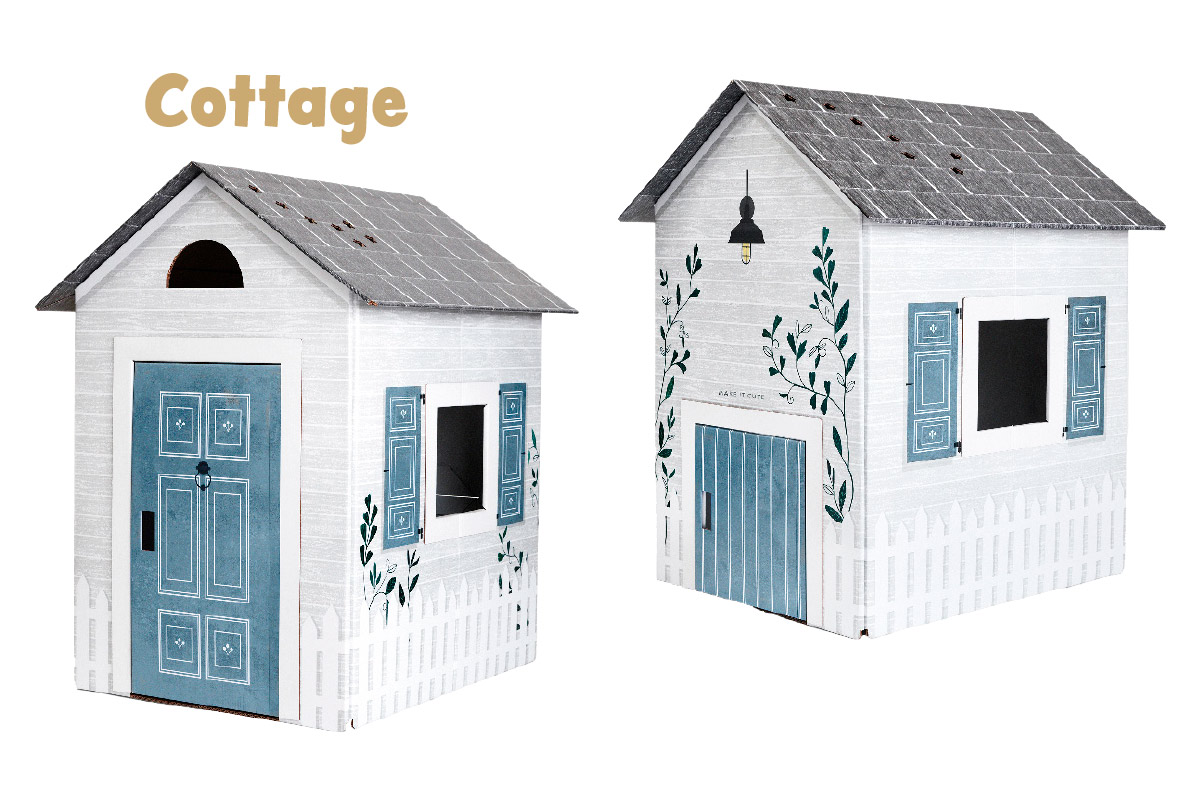
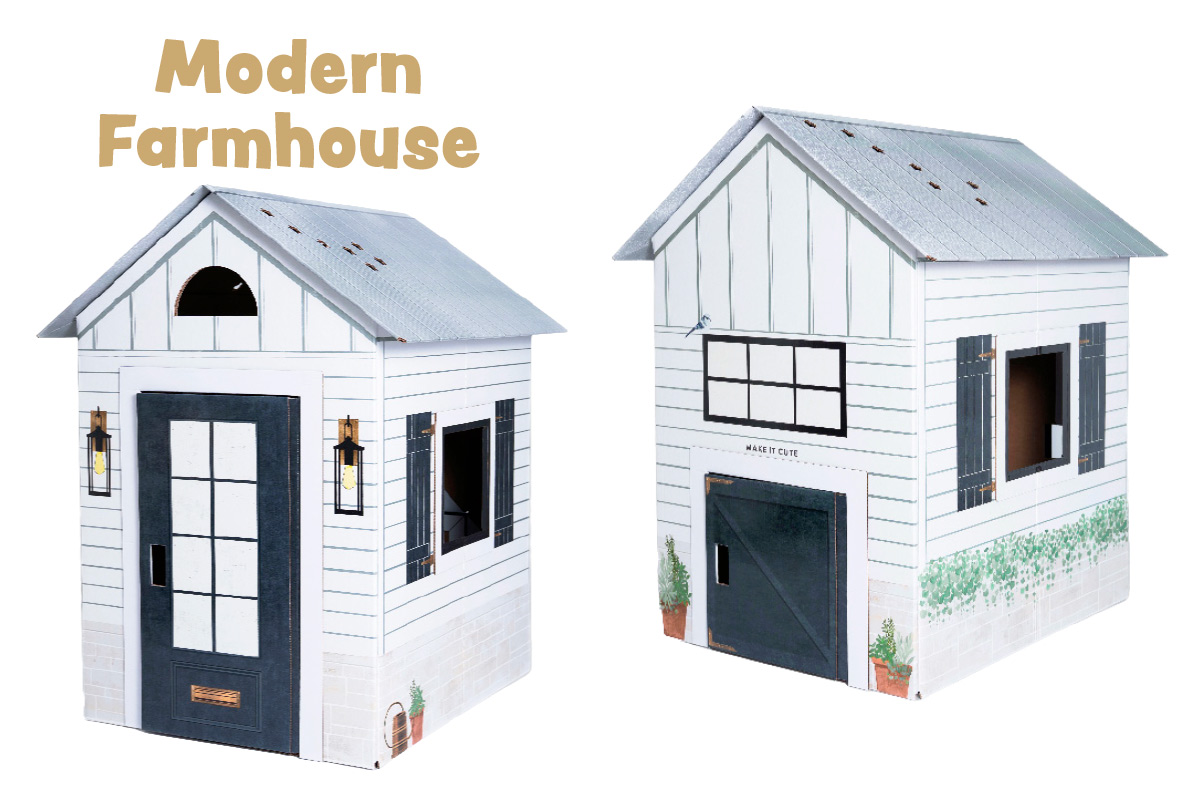
The other half of the Make It Cute mission is using earth-friendly, sustainable materials; their playhouses are made from sturdy, reinforced corrugated cardboard. “Creative kingdoms with a conscience” is their slogan. “Plastic-free is very important,” North says. “[The playhouses] can be reused over and over again. The standard playhouse on the market you usually have to toss, unfortunately.” Hoehn says while the team is exploring ways to expand the Make It Cute world with more products, like accessories and décor, “they'll always be made from recycled materials and fully recyclable on the back end.” Adds Seyfried: “We don't want people to have to think too hard. Part of our brand is you can come here and feel no guilt about buying this because we've done all the work for you, and you know there's going to be no plastic.” The friends see it as a way to lead by example in a consumer marketplace that is dominated by eco-hostile materials and manufacturing processes. “Now it's on us to do better,” Seyfried says.
In addition, Make It Cute has pledged to plant a tree through earthday.org's Canopy Project for every playhouse that is sold. Hoehn says that agreement has already translated into thousands of trees going into the ground in parts of the world that are in need of reforestation.
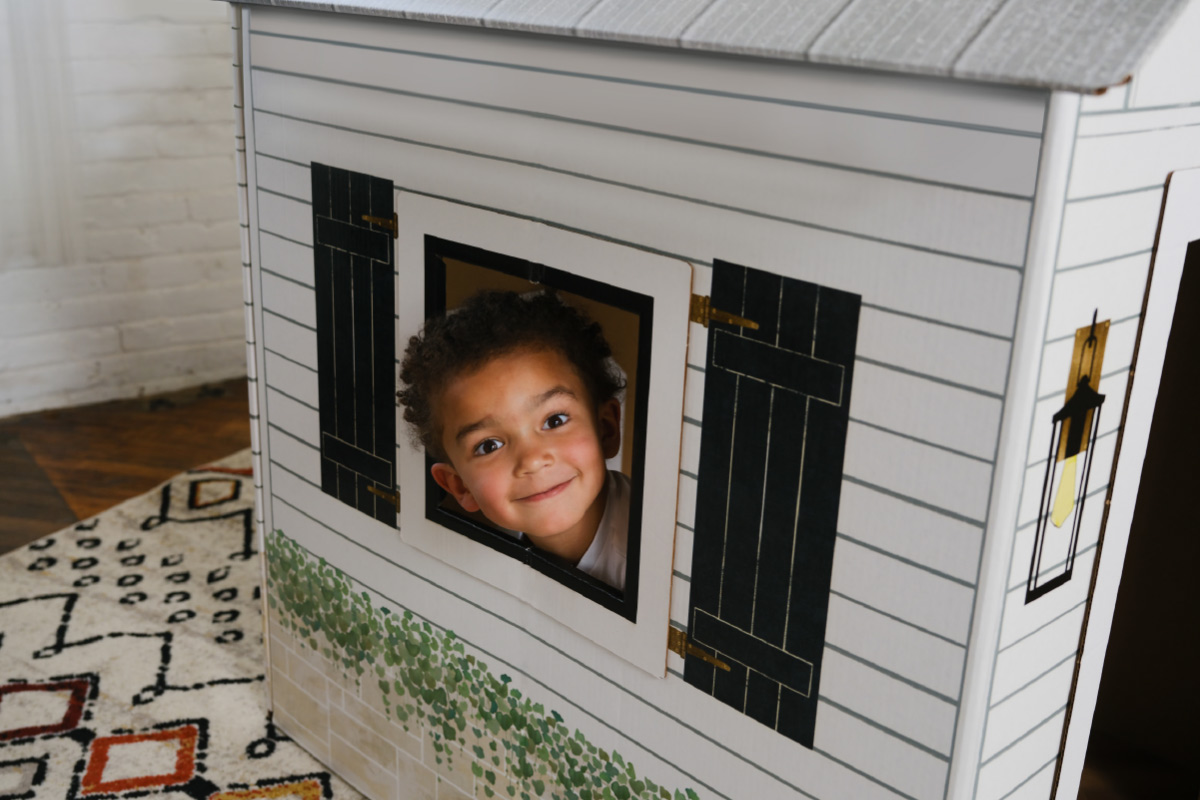
The playhouses are made in the United States and sold primarily direct to consumer through the company's website. They were designed to be easy to assemble and disassemble quickly for out-of-sight storage. While they were made with younger children in mind (ages two through six), older children are drawn to them, too, North says. She recounts a scene she witnessed in her neighborhood, in which children playing street hockey transformed the playhouses into locker rooms. “They all play so differently with it. It's really neat to watch,” she says.
Although the friends no longer live in the Lehigh Valley—North is in Charleston, South Carolina; Hoehn lives in Lewes Beach, Delaware; Seyfried calls upstate New York home—both Hoehn and Seyfried still have family members in the area and make trips back to see them (“Always on a Yocco's run,” says Seyfried slyly). Sometimes, though, the visits are more philanthropic in nature. In February, Hoehn was at her alma mater, Muhlenberg Elementary in Allentown, to present a playhouse to the school counselor's office. Make It Cute teamed up with the Allentown-based nonprofit Mindful Child Initiative (MCI) to donate a total of 15 playhouses, one for every elementary school in the district. Hoehn says the playhouses facilitate play therapy and act as semi-private calming spaces for students who need respite from the rigors of the school day.
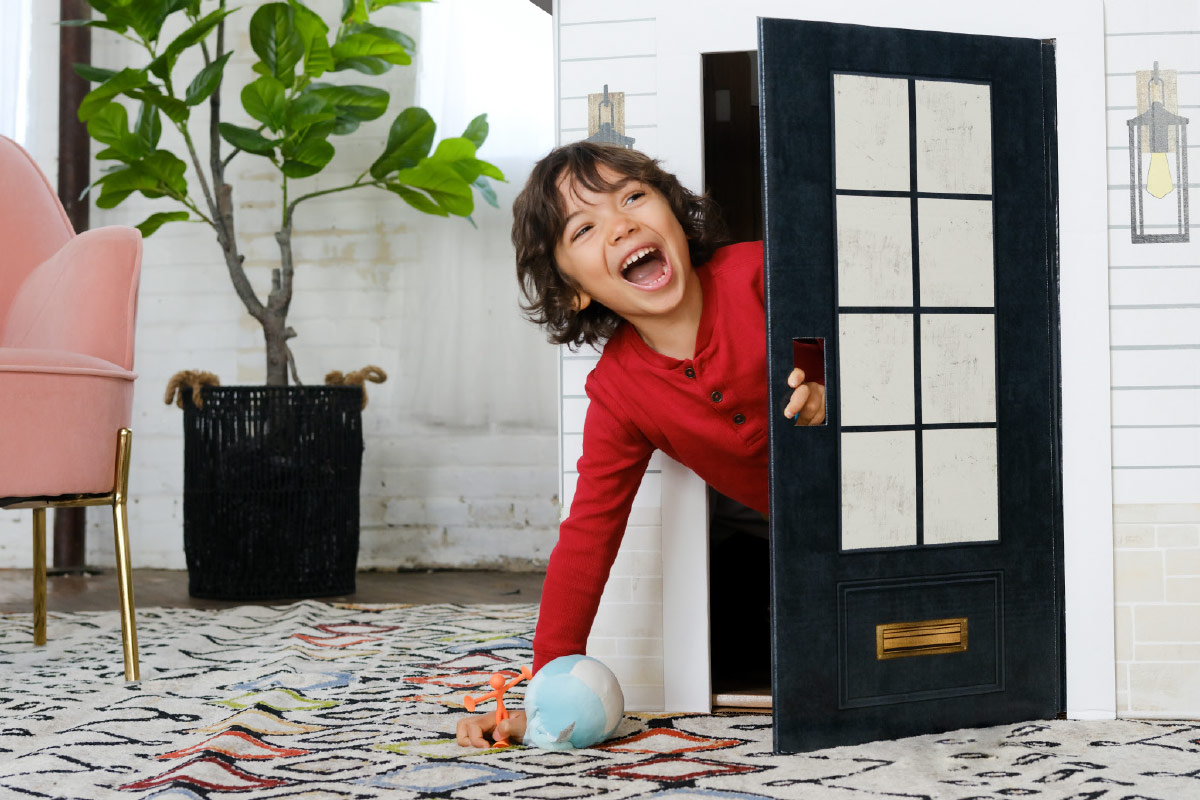
Jason Sizemore, MCI's co-executive director, says the homes align perfectly with their mission of providing kids with a variety of mindfulness tools and practices to support them. They were put to good use as soon as they were assembled. “The response has been so positive!” Sizemore says. “One counselor shared that two students came to her to resolve a conflict. One sat in the Make It Cute house, and the other sat outside. They talked about their feelings through the window and found peace.”
The donation was sponsored by a local State Farm office. Each sponsorship also provides mindfulness education to one student in the Allentown district for a full school year. “The Mindful Child Initiative visits all 415 elementary school classrooms in the Allentown School District, supporting 7,426 students,” Sizemore says. “We rely on donations, sponsorships and grants to provide these services, so having a student covered through the sponsorship of a Make It Cute house is fantastic!”
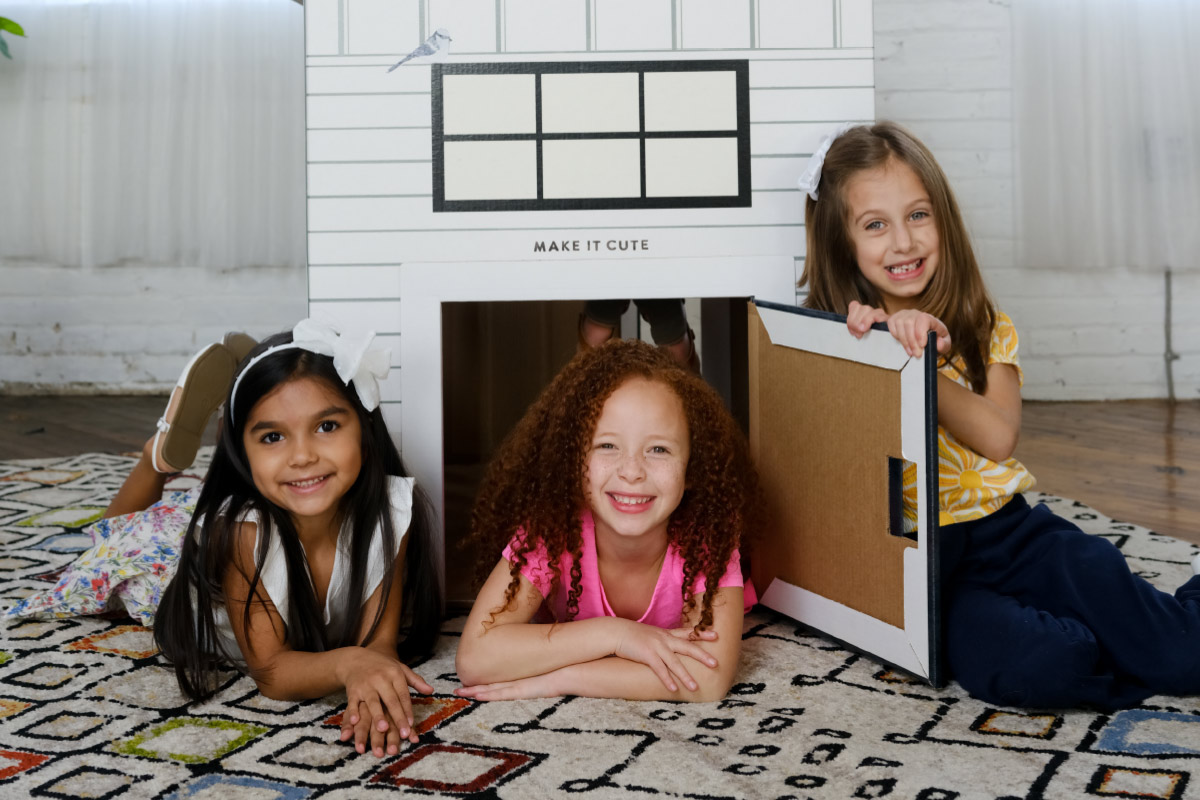
The Make It Cute team is hoping to partner with other businesses and individuals in the Lehigh Valley region to establish the playhouses wherever they are needed, such as special education classrooms, pediatricians' offices and children's hospitals. “It's become a community and it's going to continue to grow into that,” Seyfried says. “Our roots will be forever strong in the Lehigh Valley and it's really nice to give back there.”

Published as "Make It Cute" in the June 2024 edition of Lehigh Valley Style magazine.







